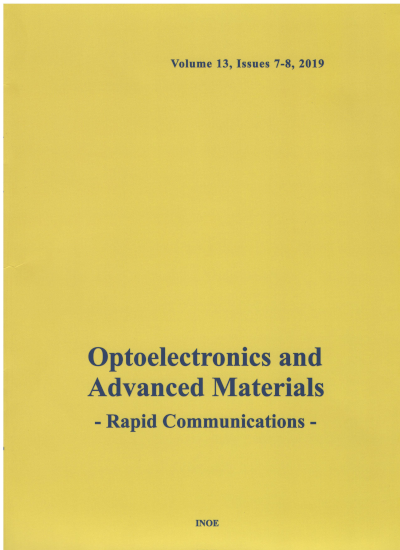Fiber optic sensor for the adulteration detection of edible oils
T. M. LIBISH1,2,*
,
J. LINESH1,
M. C. BOBBY1,
P. BISWAS3,
S. BANDYOPADHYAY3,
K. DASGUPTA3,
P. RADHAKRISHNAN1
Affiliation
- International School of Photonics, Cochin University of Science and Technology, Cochin-22, Kerala, India
- S.C.T. College of Engineering, Trivandrum, Kerala, India
- Central Glass and Ceramic Research Institute, Kolkata, India
Abstract
A fiber optic sensing system for the adulteration detection of coconut oil and sunflower oil by less expensive paraffin oil is presented. The fundamental principle of detection is the sensitive dependence of the resonance peaks of a Long Period Grating (LPG) on the changes in the refractive index of the environmental medium, surrounding the cladding surface of the grating. The spectral changes in the grating response due to variation of adulteration levels have been investigated. Detection limit of adulteration was found to be 3% for coconut oil- paraffin oil binary mixture and 4 % for sunflower oil-paraffin oil binary mixture..
Keywords
Long Period Grating, Coconut oil adulteration, Sunflower oil adulteration, Refractive index sensor,
Optical fiber sensor.
Citation
T. M. LIBISH, J. LINESH, M. C. BOBBY, P. BISWAS, S. BANDYOPADHYAY, K. DASGUPTA, P. RADHAKRISHNAN, Fiber optic sensor for the adulteration detection of edible oils, Optoelectronics and Advanced Materials - Rapid Communications, 5, 1, January 2011, pp.68-72 (2011).
Submitted at: Nov. 10, 2010
Accepted at: Jan. 26, 2011
